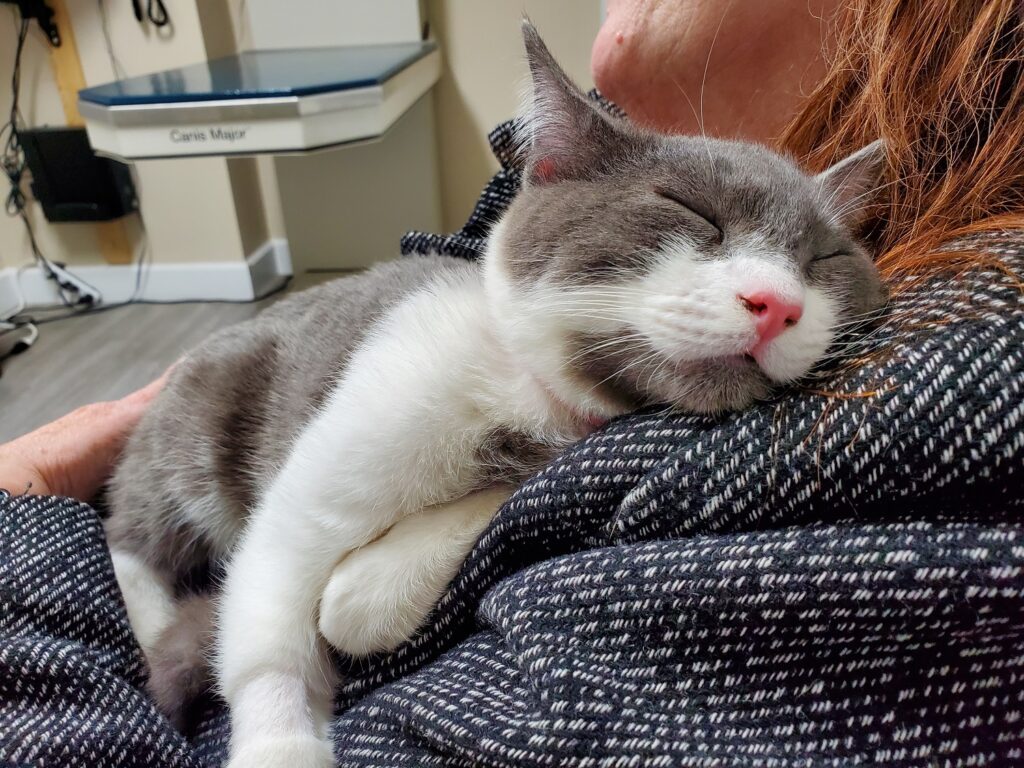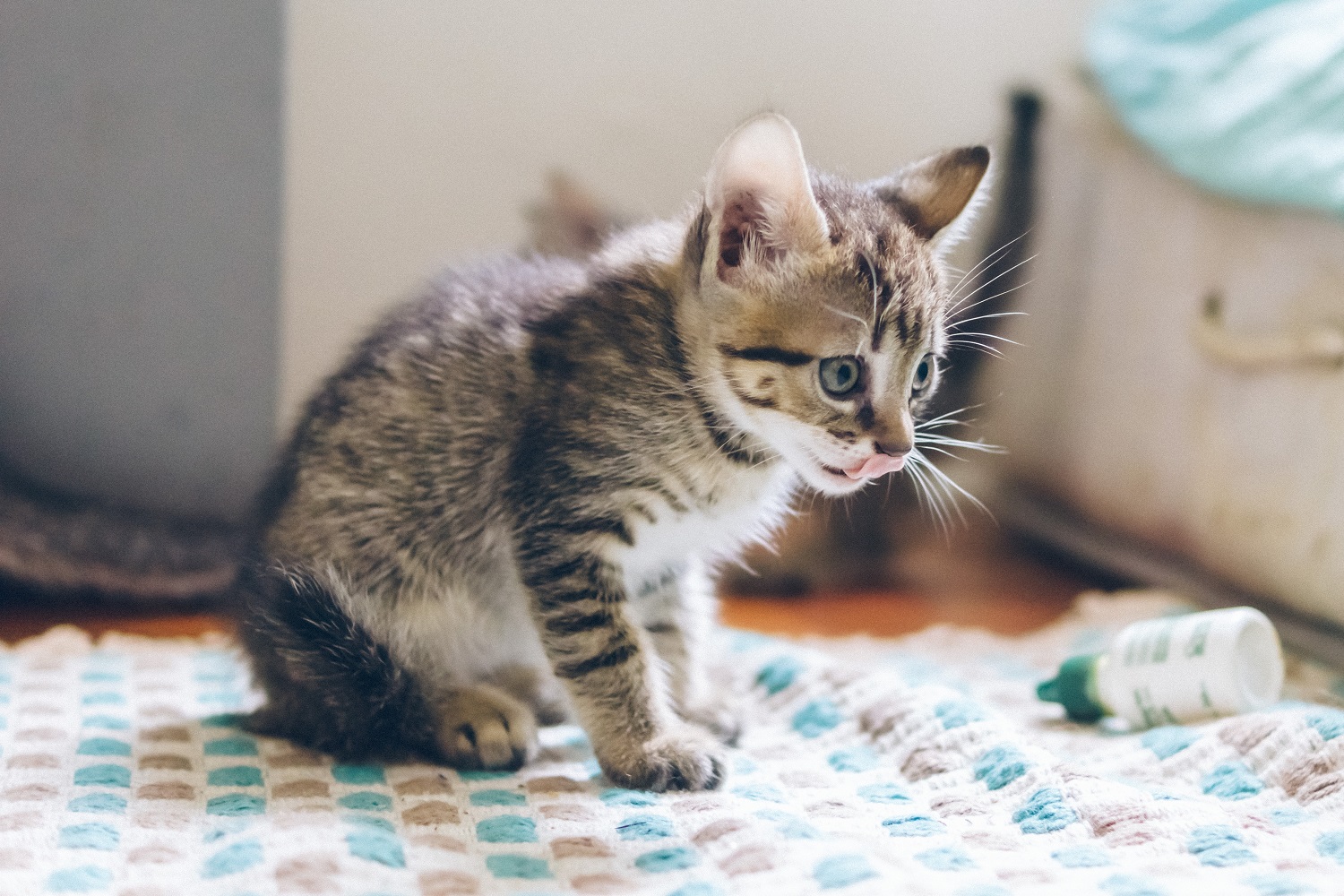Your kitten’s sneeze is adorable. Right up until it happens ten times in a row and you’re wondering if they’ve caught a cold. Occasional sneezing in kittens is usually nothing to worry about, but if it becomes frequent or is paired with other symptoms, it could signal something more serious.
Let’s break down what causes kittens to sneeze, how to tell the difference between normal and not-so-normal, and what you can do to help.
Occasional Sneezing Is Totally Normal
Just like humans, kittens can sneeze for perfectly harmless reasons. One or two sneezes here and there might be triggered by:
- Dust or litter particles
- Strong smells, like cleaning sprays, perfumes, or candles
- Tiny foreign objects, like hair or fuzz
- Playing too hard and kicking up debris
In these cases, the sneezing should stop quickly. If your kitten seems otherwise healthy; eating, playing, and acting normally, there’s usually no cause for concern.
Common Causes of Frequent Sneezing in Kittens
If your kitten is sneezing multiple times a day, especially with other symptoms, it’s time to consider what might be going on.
1. Upper Respiratory Infections (URIs)
This is the most common cause of ongoing sneezing in kittens. Think of it like a kitty cold. It’s often caused by viruses like feline herpesvirus or calicivirus, and it spreads easily in shelters, rescues, or multi-cat households.
Symptoms may include:
- Runny nose or watery eyes
- Congestion
- Loss of appetite
- Mild fever
- Eye discharge (clear, yellow, or green)
URIs often clear up on their own, but some cases need treatment. If your kitten is very young, underweight, or lethargic, contact your vet right away.
2. Allergies
Yes, cats can have allergies too, though they’re less common in kittens. Sneezing might be triggered by:
- Dust or pollen
- Mold
- Scented litter
- Household cleaners
- Smoke or air fresheners
If the sneezing happens seasonally or after cleaning, allergies could be the cause. Try removing or replacing scented products or switching to a dust-free litter.
3. Foreign Objects
Kittens are curious. They’ll sniff anything and everything, which means things like grass, lint, or even bits of litter can get lodged in their nasal passages.
If a foreign object is the cause, your kitten may:
- Paw at their nose
- Sneeze repeatedly in bursts
- Have one-sided nasal discharge
This usually requires a vet’s help to safely remove whatever’s stuck.

This one time, I got really sick. That Mom person took me to a place where other humans stuck things in my butt. But eventually I felt better. #KittyTorture #MyTemperatureIsFine #StayAwayFromMyButt
Joey
4. Dental Problems
In some cases, dental issues can affect the sinuses, especially if baby teeth aren’t falling out properly or if there’s an abscess.
Dental-related sneezing usually comes with:
- Bad breath
- Difficulty eating
- Pawing at the mouth
- Swelling near the cheek or jaw
A vet visit is the best way to identify and treat these issues early.
5. Environmental Irritants
Sometimes your kitten is just reacting to something irritating in the environment. This includes:
- Scented candles
- Essential oil diffusers
- Aerosol sprays
- Smoke from cooking
Keep these things away from your kitten’s space and ventilate rooms when using anything with strong odors.
When to See the Vet
Call your vet if sneezing is accompanied by any of the following:
- Thick or colored nasal discharge
- Labored breathing or wheezing
- Loss of appetite or dehydration
- Swelling around the eyes or nose
- Sneezing that lasts more than a few days
Kittens are more vulnerable than adult cats. If your kitten is under 12 weeks old, it’s always better to be cautious and check in with your vet sooner rather than later.
What You Can Do at Home
For mild cases of sneezing, try:
- Switching to unscented litter
- Using a humidifier to soothe irritated nasal passages
- Gently wiping away eye or nose discharge with a warm, damp cloth
- Keeping their environment clean and dust-free
Always monitor your kitten closely. If their behavior changes, if they stop eating, or if symptoms worsen, it’s time for professional care.
Final Thoughts: Sneezy, But Still Sweet
Most of the time, a sneezing kitten is just reacting to something harmless in their environment. But when it’s constant or paired with other symptoms, it could be a sign of something more serious, especially in young kittens.
Keep an eye on them, offer lots of TLC, and when in doubt, your vet is just a phone call away. Your kitten’s health is worth it, and their little nose will thank you.
Sources:
– Upper Respiratory Infections in Cats https://www.petmd.com/cat/general-health/upper-respiratory-infections-cats
– Feline Viral Respiratory Disease https://vcahospitals.com/know-your-pet/feline-viral-respiratory-disease
– Allergies in Cats https://www.aspca.org/pet-care/cat-care/cat-allergies
– Common Causes of Sneezing in Cats https://www.humanesociety.org/resources/why-do-cats-sneeze
– Cat Dental Health and Sinus Connection https://www.icatcare.org/advice/dental-disease-in-cats/
Recent Posts
Your Cat Might Be a Furry Little Healer… or at Least a Fuzzy Alarm System If you’ve ever had your cat suddenly become extra clingy when you’re under the weather, you’re not alone. From...
Cats are experts at hiding things, socks under furniture, their disdain for your playlist, and, unfortunately, symptoms of illness. In the wild, showing weakness could make them a target, so even...


